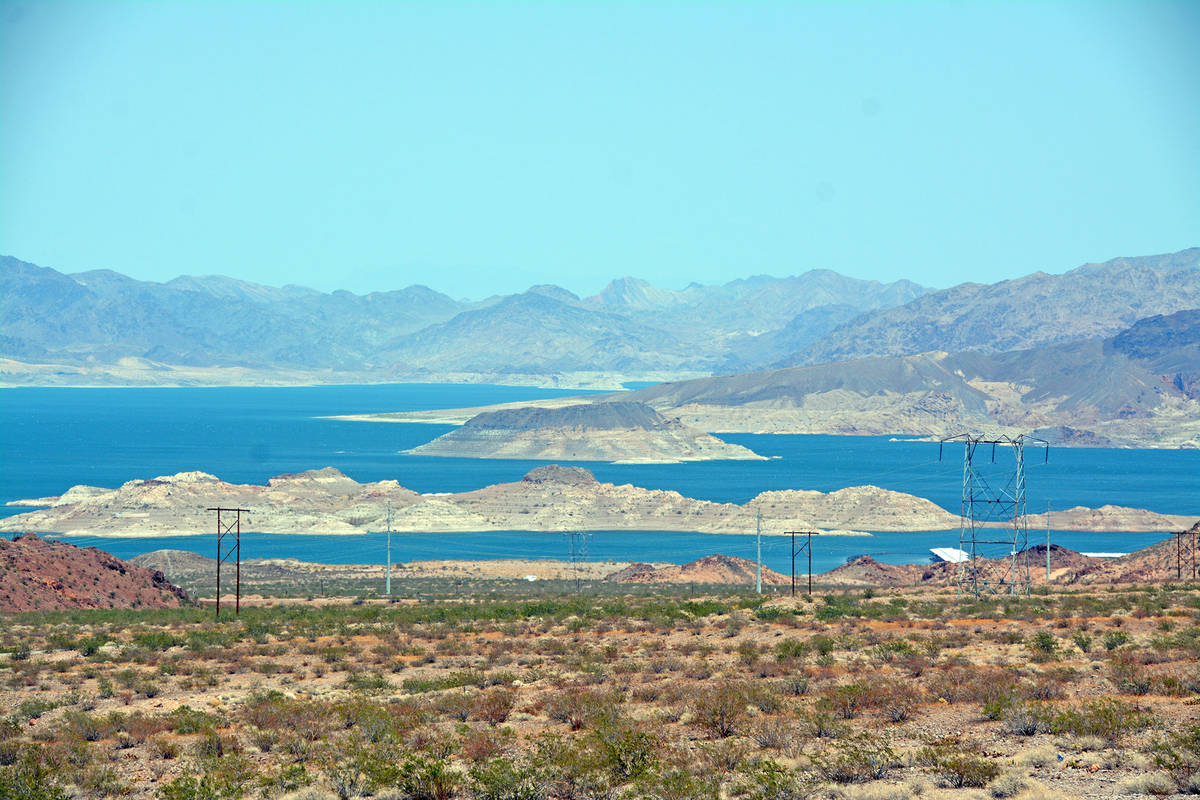
Boulder City is not expected to lose any of its water despite the first federally declared shortage for Lake Mead.
The shortage, announced Monday, Aug. 16, was triggered by the U.S. Bureau of Reclamation’s water level projections. Due to it, Nevada’s allocation of Colorado River water will be reduced in 2022.
“The city has not been informed of any immediate impact to our utilities,” said City Manager Taylour Tedder. “We continue to keep residents informed about water conservation and share programs offered through Southern Nevada Water Authority in our utility bills, on our website and through social media posts.”
For 2022, Nevada’s allocation of water will be cut by almost 7 billion gallons of water or 21,000 acre-feet. Normally, the state receives 300,000 acre-feet of water each year.
One acre-foot is about what two Las Vegas Valley homes use over the course of 16 months.
“We’ve been preparing for more than two decades to respond to shortage and the inevitable impacts of a hotter and drier climate. … Because we have successfully pre-conserved these reductions, we will not actually need to reduce (water) deliveries for any of our member agencies,” said John Entsminger, general manager of the Southern Nevada Water Authority.
Entsminger said the agency’s cornerstone of preservation is its “ability to sustainably recycle all of our indoor water use.”
“If we continue to conserve water, we continue to get people to follow the existing rules that are in place for irrigation, starting with going to three days a week on Sept. 1, and if we continue on our conservation journey, our community doesn’t need to have a water supply problem,” he added.
Entsminger also said collaboration is key in fighting the water shortage.
“Continued cooperation, collaboration and partnerships are key to our region’s future,” he said. “We cannot solve these problems in a vacuum.”
This water shortage follows two decades of drought that has strained the Colorado River, a vital water source for 40 million people. Lake Mead, the country’s largest reservoir, supplies about 90 percent of Southern Nevada’s water.
Currently, the Colorado River is operating at 40 percent capacity. That amount is down from the 49 percent at the same time in 2020, according to Tanya Trujillo, the Department of the Interior’s assistant secretary for water and science.
“Boulder City sees the impact of the drought every day when they look at Lake Mead, and city staff will ensure any information we learn is shared promptly with the community,” said Tedder. “They are seeking ways to conserve through various methods, such as selling wastewater for various projects and planting more drought-resistant grass and plants.”
This shortage also affects Glen Canyon Dam in Arizona that releases water downstream to Lake Mead from Lake Powell. It will have to scale back its downstream releases by 750,000 acre-feet.
Last month, federal officials announced that upstream reservoirs will release extra water into Lake Powell this year to prop up the reservoir’s water level to protect the lake from approaching a level where the Glen Canyon Dam can no longer generate electricity.
The amount of water released to Lake Mohave, located in Lake Mead National Recreation Area near Laughlin, will not be affected.
“Lake Mohave and Lake Havasu are held to seasonal elevations for water delivery and environmental purposes and will not be affected by the shortage condition at Lake Mead,” said Patricia Aaron, public affairs officer for the Bureau of Reclamation’s Lower Colorado Region.
Aaron also said Lake Mohave’s current summer elevation is between 642 and 643 feet, which is normal.
“This elevation … is a normal part of operating the reservoir this time of year with changing water orders and monsoonal precipitation,” she said.
Las Vegas Review-Journal reporter Blake Apgar contributed to this report.
Contact reporter Celia Shortt Goodyear at cgoodyear@bouldercityreview.com or at 702-586-9401. Follow her on Twitter @csgoodyear.